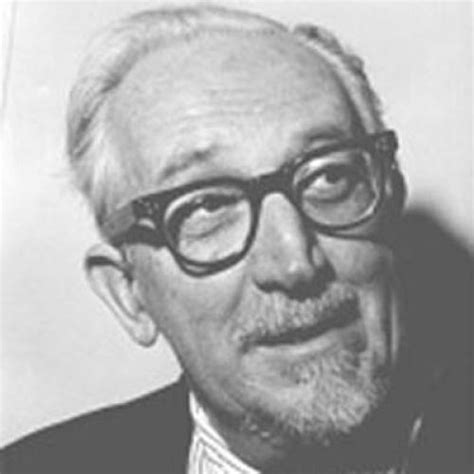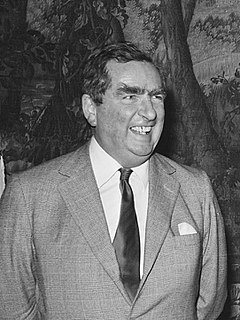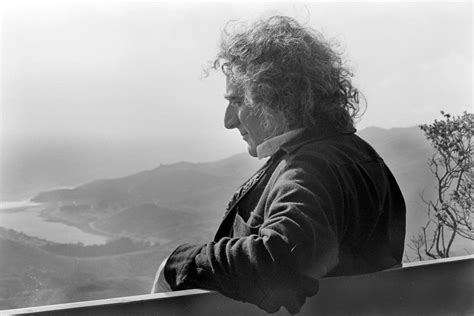A Quote by Dwight Macdonald
By 'socialism' I mean a classless society in which the State has disappeared, production is cooperative, and no man has political or economic power over another. The touchstone would be the extent to which each individual could develop his own talents and personality.
Related Quotes
According to Marx, socialism is the first stage of communism and it covers a very long historical period in which we must practise the principle "to each according to his work" and combine the interests of the state, the collective and the individual, for only thus can we arouse people's enthusiasm for labour and develop socialist production.
It is unfortunately none too well understood that, just as the State has no money of its own, so it has no power of its own. All the power it has is what society gives it, plus what it confiscates from time to time on one pretext or another, there is no other source from which State power can be drawn. Therefore every assumption of State power, whether by gift or seizure leaves society with so much less power; there is never, nor can be, any strengthening of State power without a corresponding and roughly equivalent depletion of social power.
The Enemy wants to bring the man to a state of mind in which he could design the best cathedral in the world, and know it to be the best, and rejoice in the fact, without being any more (or less) or otherwise glad at having done it than he would be if it had been done by another. The Enemy wants him, in the end, to be so free from any bias in his own favour that he can rejoice in his own talents as frankly and gratefully as in his neighbour's talents--or in a sunrise, an elephant, or a waterfall.
I would like to suggest to you that the extent to which government in America has departed from the original design of in habiting the destructive actions of man and invoking a common justice; the extent to which government has invaded the productive and creative areas; the extent to which the government in this country has assumed the responsibility for the security, welfare, and prosperity of our people is a measure of the extent to which socialism has developed here in this land of ours.
Without calculation, economic activity is impossible. Since under Socialism economic calculation is impossible, under Socialism there can be no economic activity in our sense of the word All economic change, therefore, would involve operations the value of which could neither be predicted beforehand nor ascertained after they had taken place. Everything would be a leap in the dark. Socialism is the renunciation of rational economy.
Socialism to me is establishing social control of power in society, and where that differs from liberalism for example which aims at a similar situation in some respects, is we think you can only establish control over power by changing the structure and distribution of power, notably economic power.
With only one life to live we can't afford to live it only for itself. Somehow we must each for himself, find the way in which we can make our individual lives fit into the pattern of all the lives which surround it. We must establish our own relationships to the whole. And each must do it in his own way, using his own talents, relying on his own integrity and strength, climbing his own road to his own summit.
Nevertheless, it is necessary to remember that a planned economy is not yet socialism. A planned economy as such may be accompanied by the complete enslavement of the individual. The achievement of socialism requires the solution of some extremely difficult socio-political problems: how is it possible, in view of the far-reaching centralisation of political and economic power, to prevent bureaucracy from becoming all-powerful and overweening? How can the rights of the individual be protected and therewith a democratic counterweight to the power of bureaucracy be assured?
MORAL LAW, Evidence of.- Man has been subjected by his Creator to the moral law, of which his feelings, or conscience as it is sometimes called, are the evidence with which his Creator has furnished him. ... The moral duties which exist between individual and individual in a state of nature, accompany them into a state of society ... their Maker not having released them from those duties on their forming themselves into a nation.
Does the open wound in another's breast soften the pain of the gaping wound in our own? Or does the blood which is welling from another man's side staunch that which is pouring from our own? Does the general anguish of our fellow creatures lessen our own private and particular anguish? No, no, each suffers on his own account, each struggles with his own grief, each sheds his own tears.
Each member of society can have only a small fraction of the knowledge possessed by all, and...each is therefore ignorant of most of the facts on which the working of society rests...civilization rests on the fact that we all benefit from knowledge which we do not possess. And one of the ways in which civilization helps us to overcome that limitation on the extent of individual knowledge is by conquering intelligence, not by the acquisition of more knowledge, but by the utilization of knowledge which is and which remains widely dispersed among individuals.
To the American people of 1789, their nation promised a new way of life: each individual a free man; each having the right to seek his own happiness; a republican form of government in which the people would be sovereign; and no arbitrary power over people's lives. Less than two hundred years later, almost every aspect of the dream has been lost.
I ask that you offer to the political arena, and to the critical problems of our society which are decided therein, the benefit of the talents which society has helped to develop in you. I ask you to decide, as Goethe put it, whether you will be an anvilor a hammer. The question is whether you are to be a hammerwhether you are to give to the world in which you were reared and educated the broadest possible benefits of that education.





































